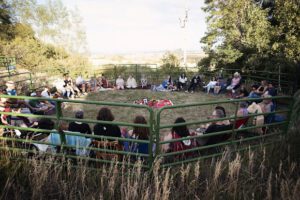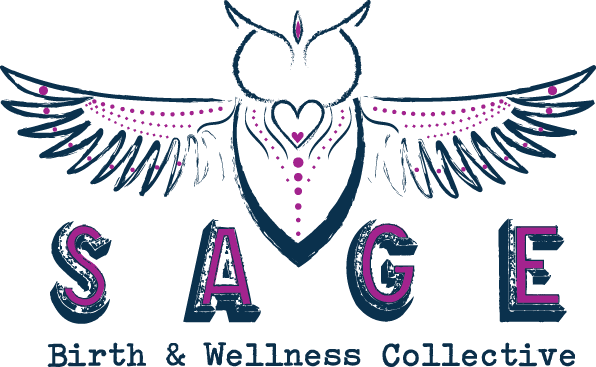
When I set out to write a blog post for the birthwork community, I knew I wanted to make it about one of my own core values in the care I aim to provide for my postpartum clients. But, I also wanted to make it relevant to the times and to the larger community, which I hope I have achieved. So whether you’re pregnant/postpartum, have a pregnant/postpartum person in your life, or are simply a member of a community looking for ways to stay connected to others when it feels like we are intentionally being pitted against each other, I hope you find something of value in this article. Don’t hesitate to reach out to me directly if you have comments or feedback, or are looking for concrete ways to stay connected to your community. This is at the core of the work that we do, and above all, we need caring people in order to stay in community with each other.
Ancestral Communities
The saying “it takes a village” probably sounds familiar to all of us, but what do we know about where it comes from, why it’s changed, and how to make it work for us again?
 The saying comes from the timeless understanding that raising a child takes more than just one or two people. In traditional communities, families lean on neighbors, extended family, and others for advice, shared responsibility, and hands-on help in all stages of child-rearing. The collective approach – obviously – lightens the load on parents. It also provides children with more role models and a sense of connection to the wider community. Community reliance also recognizes that having community support is essential for thriving and balancing the wellness of the family, household, and self. This, in turn, sustains society as a whole. Impactful, right? So why did we lose these values, and what work can we do in order to get them back?
The saying comes from the timeless understanding that raising a child takes more than just one or two people. In traditional communities, families lean on neighbors, extended family, and others for advice, shared responsibility, and hands-on help in all stages of child-rearing. The collective approach – obviously – lightens the load on parents. It also provides children with more role models and a sense of connection to the wider community. Community reliance also recognizes that having community support is essential for thriving and balancing the wellness of the family, household, and self. This, in turn, sustains society as a whole. Impactful, right? So why did we lose these values, and what work can we do in order to get them back?
American History of Independence v Interdependence
In modern day America, most families are not only isolated from extended family, but also from friends and neighbors. The values within our dominant culture make it hard for modern families (and individuals) to receive the support that they need, especially during the postpartum period. Our country is built on ideals that socialize us (to varying degrees) to value independence over interdependence. These foundational legacies include white supremacy, colonialism, and capitalism. Understanding how these concepts have shaped both our history and modern day culture can help us loosen our grip on societal expectations and embrace a more communal mindset. We can build community as an act of resistance to the status quo.
Colonialism in America refers to both a historical period and the values that have persisted from it. In the 15th century, European powers violently displaced Indigenous people and their established structures, a legacy that continues to influence modern institutions, policy, and culture. White supremacy is deeply tied to colonialism, as it relied – and continues to rely – on the exploitation of BIPOC (black and indigenous people of color) to fuel the prosperity of white settlers. White supremacy and colonialism continue to devalue traditional communal practices common among indigenous and other non-white cultures. Ideals of individual property and nuclear families have been prioritized, and the well-being of the collective undermined.
Closely tied to this is capitalism, which further promotes the notion that personal success comes from individual productivity and self-reliance. It encourages us to see ourselves as independent entities solely responsible for our own success and security, and sends the message that asking for help or leaning on others is a weakness. Again, the importance of community is downplayed, and personal success is prioritized over shared resources and responsibilities.

Most of us have internalized these values because we have been brought up surrounded by them. How good would it feel to allow ourselves to break free from the American ideal of independence over interdependence, and let the support of our loved ones wash over us, in the tender immediate postpartum period, and beyond? And where do we start to unravel what is so ingrained in us?
Rebuilding Community
When we ask for help, we are giving someone the opportunity to care for us, thus building community. The people that love us are often waiting for the opportunity to show up for us, especially (but not only) during the immediate postpartum period.
Asking for the support of our friends, neighbors, and family can feel vulnerable because dominant discourse says we are supposed to be able to support ourselves. But it’s reaching out for help that opens the door to connection and reciprocity. It makes others feel valuable in our lives (they are), and reinforces the lost community values of shared responsibility, resources, and mutual aid. The more we can communicate about what we need, the more meaningful the support we receive will be. 
As we navigate a world that tells us self-reliance is strength, and that keeps pushing for division, we have the power to reclaim community values that have sustained people for generations. The rebuilding of community is not just an act of care, it’s a resistance to the status quo. By reaching out for help, showing up to support, and leaning on each other, we can build a more connected and resilient world.
